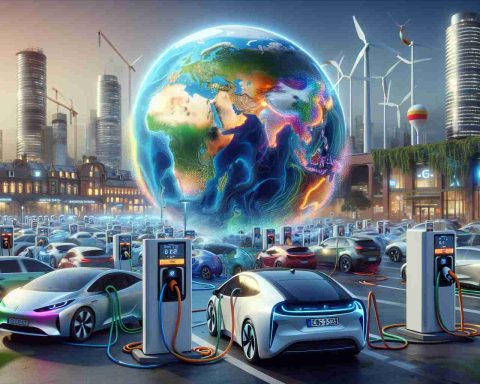A Supply-Demand Shift in Vehicle Manufacturing
A recent study by leading experts in earth and environmental sciences has revealed a significant discrepancy between the rising global demand for electric vehicles and the current supply capabilities of essential materials like copper. The research highlights the challenges faced by the industry as it strives for decarbonization and electrification.
Rethinking the Approach to Electrification
Rather than focusing solely on expanding copper mining operations to meet the increasing demand for electric vehicles, the study proposes a novel solution: transitioning to hybrid vehicle manufacturing. By opting for hybrid electric vehicles instead of battery electric vehicles, manufacturers can alleviate the pressure on the mining industry without sacrificing the goal of reducing carbon emissions.
A Sustainable and Realistic Transition
The authors of the report advocate for a gradual shift towards hybrid vehicles, citing the comparable copper requirements for manufacturing hybrid and internal combustion engine vehicles. With hybrid electric vehicles requiring only slightly more copper than traditional vehicles, this alternative presents a more resource-efficient approach to vehicle electrification.
Looking Towards a Balanced Future
While the transition to hybrid vehicles may not be a perfect solution, it offers a pragmatic way to bridge the gap between electrification goals and the limitations of copper supply. By embracing hybrid technology, the automotive industry can navigate the challenges of sustainable manufacturing while moving towards a greener future.
Exploring the Future of Vehicle Manufacturing: Embracing Hybrid Solutions
As the automotive industry faces the pressing need to reduce carbon emissions and embrace sustainability, the conversation around vehicle electrification continues to evolve. While the shift towards electric vehicles is gaining momentum, a notable development in this landscape is the growing interest in hybrid vehicle manufacturing as a strategic solution. Let’s delve deeper into this topic by exploring key questions and considerations surrounding the adoption of hybrid technologies.
What are the Key Advantages of Hybrid Vehicles?
Hybrid vehicles offer a unique blend of traditional internal combustion engine technology and electric powertrains, providing the benefits of both systems. One key advantage of hybrid vehicles is their improved fuel efficiency, which can result in reduced greenhouse gas emissions and lower operating costs for consumers. Additionally, hybrids often have regenerative braking systems that capture energy during braking, further enhancing their efficiency.
How Do Hybrid Vehicles Address Challenges in the Transition to Electrification?
One of the significant challenges in the electrification of vehicles is the limited availability of materials such as copper for manufacturing batteries. Hybrid vehicles present a compelling solution by requiring less extensive use of resources like copper compared to purely electric vehicles. This makes them a practical choice for automakers looking to balance sustainability goals with supply chain constraints.
What are the Disadvantages of Hybrid Technology?
While hybrids offer benefits in terms of resource efficiency, there are also considerations to keep in mind. Hybrid vehicles tend to be more complex than traditional internal combustion engine vehicles, potentially leading to higher maintenance costs and repair complexity. Additionally, the manufacturing processes for hybrid vehicles may involve a mix of technologies, requiring specialized expertise and infrastructure.
Key Challenges and Controversies Surrounding Hybrid Vehicles
One of the main challenges associated with hybrid vehicles is the perception that they represent a transitional technology rather than a definitive solution to carbon emissions. Some critics argue that hybrid vehicles may delay the widespread adoption of fully electric vehicles, which are seen as the ultimate goal for reducing environmental impact. Balancing these viewpoints and understanding the long-term viability of hybrid technologies is crucial for the industry’s future direction.
In conclusion, the shift towards hybrid vehicle manufacturing represents a nuanced approach to achieving sustainability in the automotive sector. By addressing critical questions, assessing advantages and disadvantages, and acknowledging challenges, stakeholders can make informed decisions about the role of hybrid technologies in the future of vehicle manufacturing.
For further insights on the latest trends in sustainable transportation and vehicle technology, visit Automotive News.







